The less attention you give someone, the more they'll give you
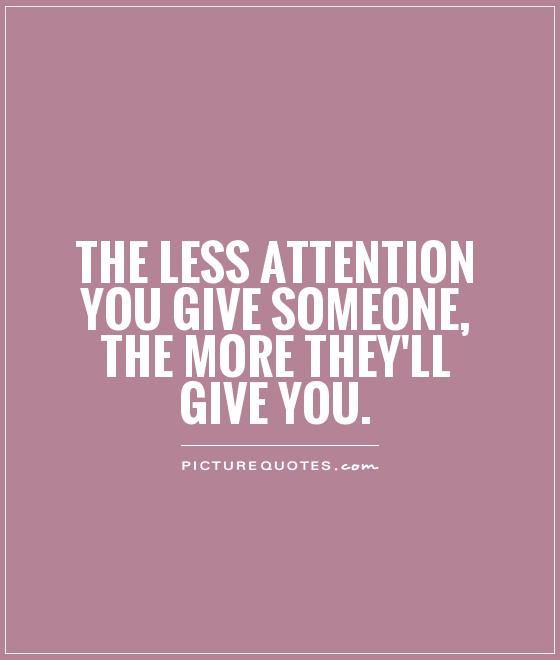
The less attention you give someone, the more they'll give you
In the realm of human interaction, attention is a powerful currency. It is a fundamental aspect of communication and relationships, as it signifies interest, care, and respect towards another person. However, the dynamics of attention can be complex and nuanced, especially when it comes to the concept of reciprocity. The saying "the less attention you give someone, the more they'll give you" encapsulates this idea perfectly.When it comes to attention, there is a delicate balance that needs to be maintained. Giving too much attention can sometimes come across as overwhelming or suffocating, while giving too little attention can be perceived as indifference or neglect. This is where the principle of reciprocity comes into play. People tend to respond to the level of attention they receive from others, and often mirror that behavior back.
In the context of attention wars, the saying holds true in many ways. When someone feels like they are not receiving enough attention from another person, they may feel compelled to seek out more attention from that individual. This can manifest in various ways, such as seeking validation, approval, or simply trying to engage the other person in conversation or interaction. On the other hand, when someone feels like they are receiving too much attention, they may start to pull back and give less attention in return.
This dynamic can create a sort of attention tug-of-war, where both parties are vying for the other's attention while simultaneously trying to maintain a sense of balance. The less attention one person gives, the more the other person may try to compensate by giving more attention in return. This can create a cycle of escalating attention, where both parties are constantly trying to outdo each other in terms of giving attention.
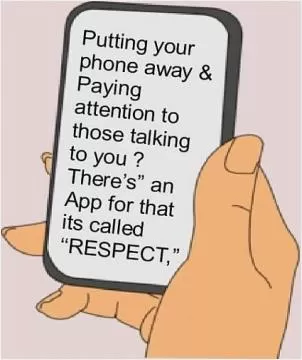


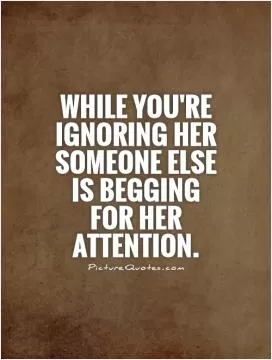

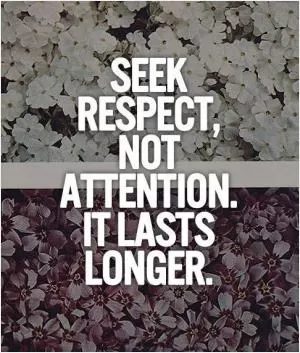
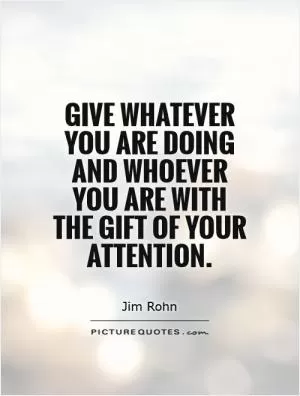


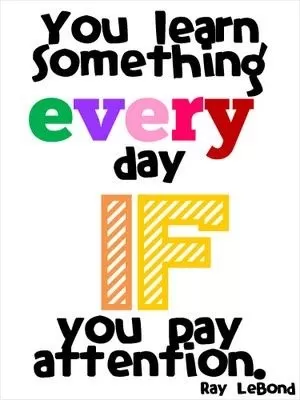
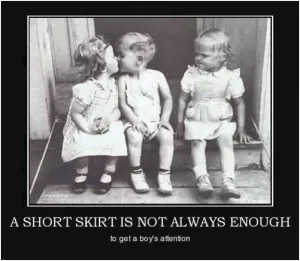

 Friendship Quotes
Friendship Quotes Love Quotes
Love Quotes Life Quotes
Life Quotes Funny Quotes
Funny Quotes Motivational Quotes
Motivational Quotes Inspirational Quotes
Inspirational Quotes